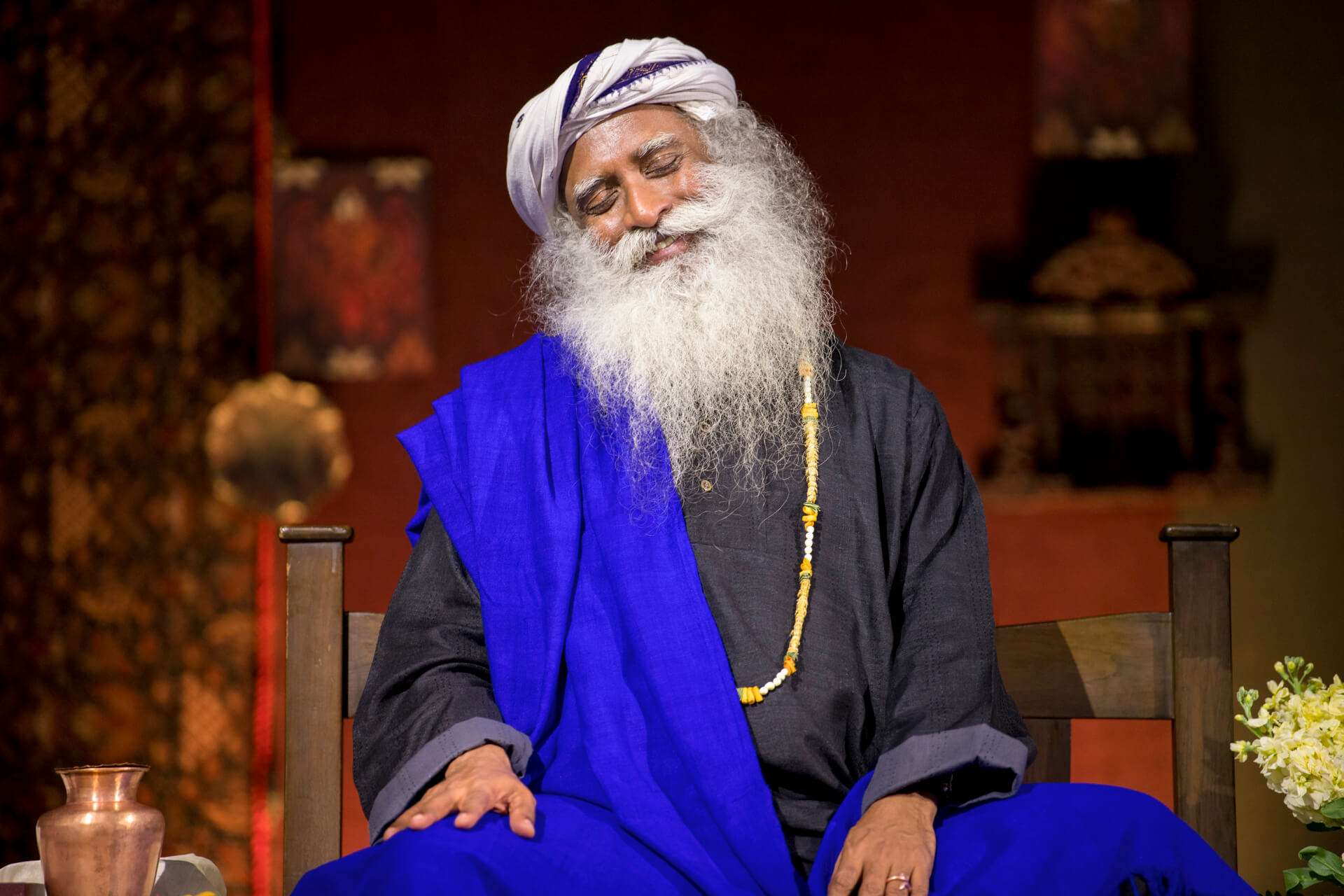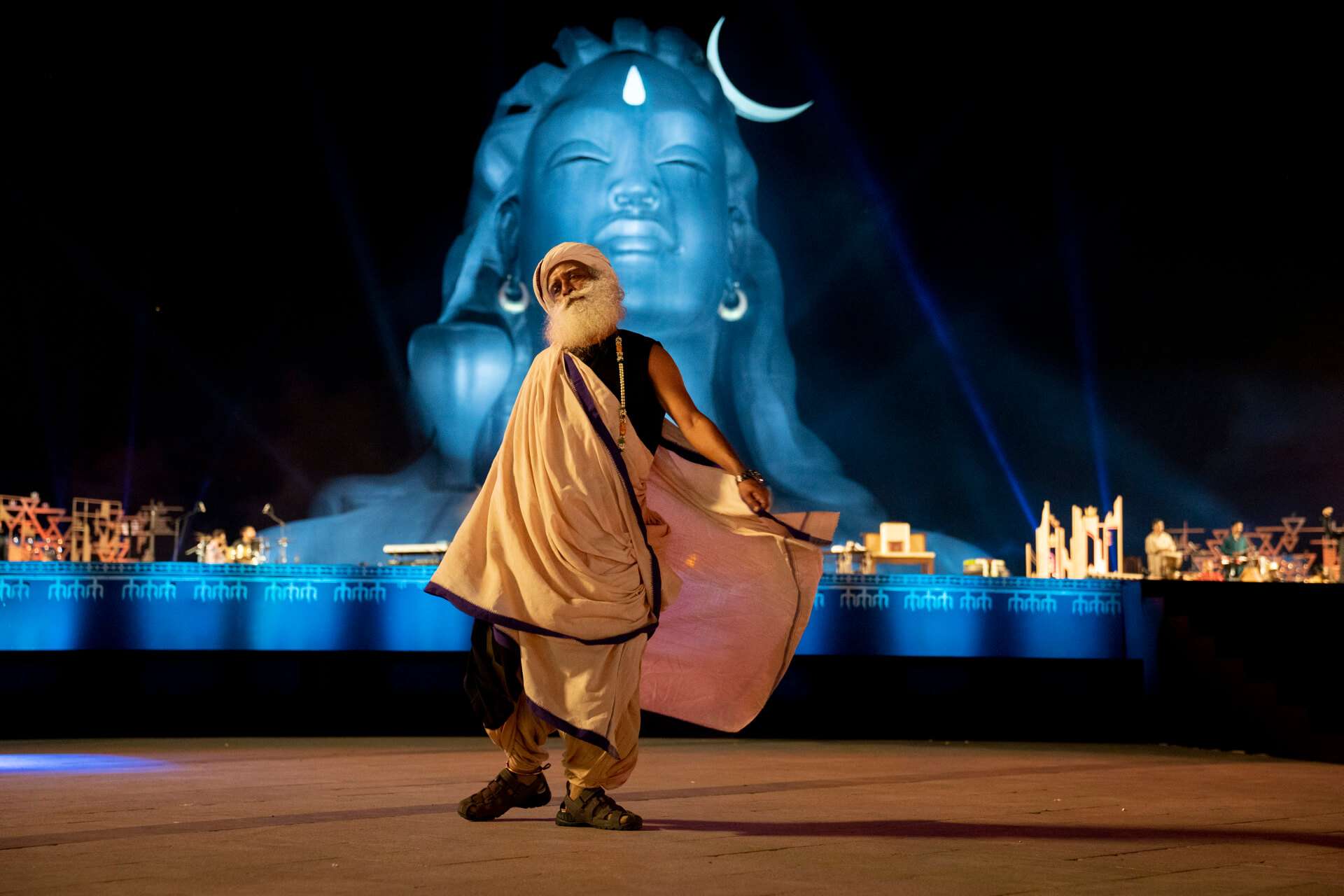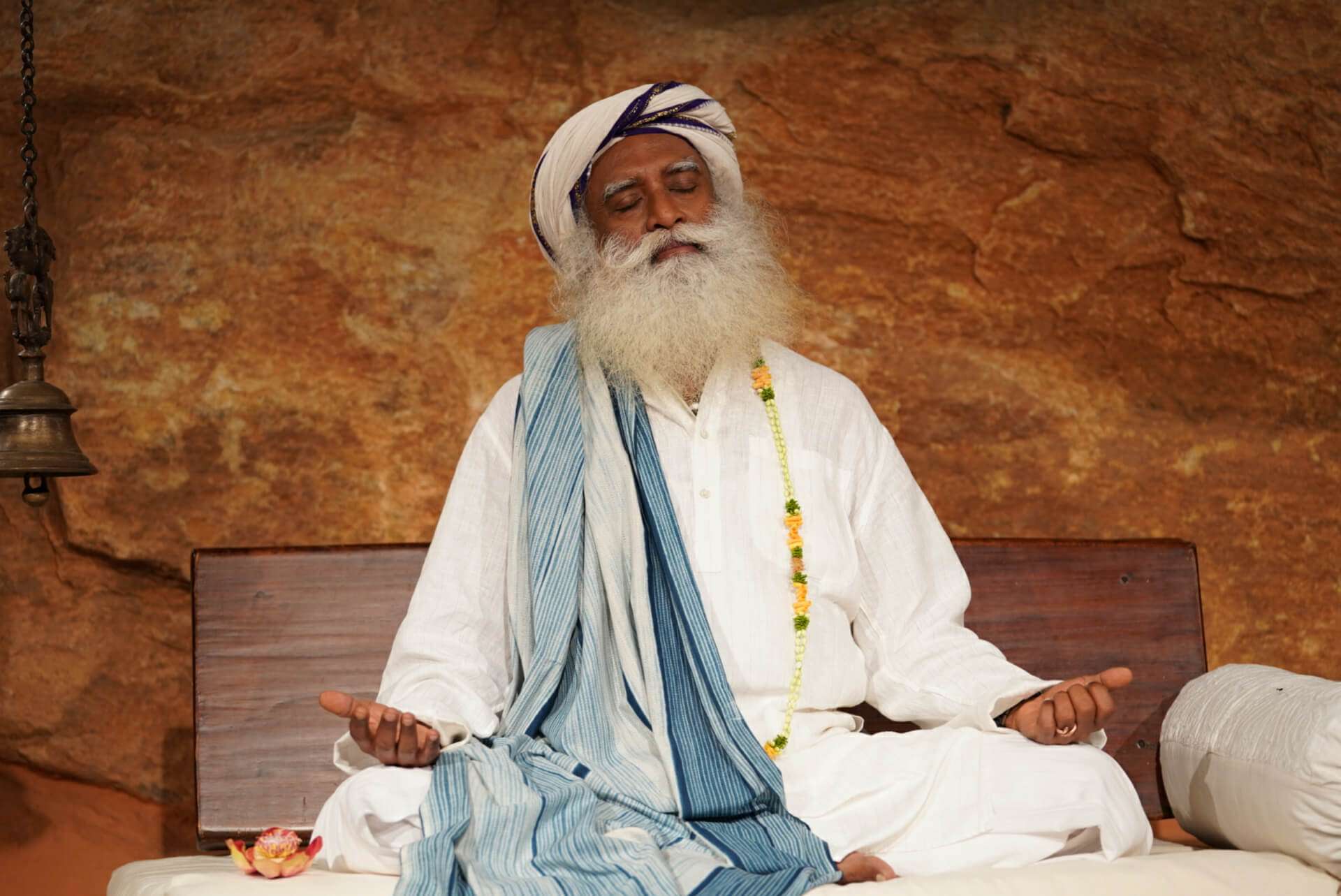

Sadhguru shares a surprisingly simple method to make blissfulness a natural part of life. He not only explains the technology of how it works in the human system but also at what times this practice is most effective.
Sadhguru: After a rich man died, a neighbor asked Shankaran Pillai, “What has he left behind?” Shankaran Pillai laughed and said, “Every penny, every trinket, every little thing.”
What we gather will not be of any consequence. The only thing that matters is how we nurture this life within, and what we make out of it within ourselves. If you become life-oriented, suddenly you will find that neither desire nor attachments are of any consequence. There will be no anger or hatred anymore because once you realize the precious nature of your existence, there will be no time for those things. To be pleasant, loving, and joyful will be a natural outcome.
Only in the blossoming of this life is there liberation. If this life overflows, then you do not have to look up and pray to any God – divinity will come in search of you.

Why do most human beings struggle to establish even a little bit of peace or joy in their lives? There are too many philosophies about it, but let us look at it technically. How are all experiences of life entering us? If you touch, taste, see, hear, or smell something, it first touches your sense perception. From there, the neurological system takes it up to your brain and creates a pleasant or unpleasant experience.
This pleasantness or unpleasantness of experience does not come entirely from the outer stimuli but also depends on how you are at that moment. If you are frustrated or disturbed and someone plays nice music, it may further put you into a rage. Pleasant music is not always pleasant – you must be ready for it at that moment.
There are two aspects to human experience. One is the nature of the stimuli, and another is how we are right now – our impressions, our samskara, and our karmic substance. If your karma in this moment is frustration, and someone tries to do pleasant things to you, you will scratch their eyeballs out. So, experience is not entirely because of the stimuli; one’s karmic substance is also at play.

When a stimulus touches a sense organ, it travels from there almost instantaneously through the neurological system. Beyond that, there is another, more elaborate system – the pranamaya kosha or energy body – but it moves at least a hundred times more slowly than the neurological system. If you hold on to the neurological pleasantness of an experience for long enough, then pleasantness begins to travel through the energy body. Once pleasantness sweeps through the energy body – whether it is love or joy or blissfulness – it will become your quality.
It is not that you will become blissful; bliss will become the quality of the life that pervades your system. If the life energies become pleasant, blissfulness will be your nature. If you watch the sunrise and feel wonderful for a moment, it is neurological pleasantness. For it to become part of your life energy, you need to hold on to that experience because it is at least a hundred times slower.
If you are able to hold on to any experience for 24 minutes, the pleasantness of the neurological system sinks deeper into the pranic system. Then sitting here blissfully becomes normal.

If you are really thirsty and you drink a glass of water, it is not just the thirst that is being quenched, your throat feeling better, and the coolness spreading in your body – the entire being feels pleasant. Learn to stay with this experience of pleasantness. Right now, most of you cannot stay there for more than two to three seconds.
This pleasantness of experience is caused from within, not by the mind. The mind chooses the experience, but it cannot cause the experience. If you look at someone and your mind thinks, “Oh, he is horrible,” you have chosen an unpleasant experience that is caused from within. Your mind has chosen the experience, but it does not cause the experience. Something within that you call “myself” or that we call “life” causes the experience.
Your mind is like a mirror. While it may not be a plain mirror – it may be very distorted – it shows you the world. Whether you see it straight or distorted is debatable. You are seeing the world because it is being reflected in your mind. But the mind never reflects you.
I am not talking about your physical self or your psychological self. You can contemplate your thought and emotion, but you cannot contemplate the self. Your existence cannot be contemplated; it can only be experienced. But the most important thing in this existence right now for you is that you are here. Otherwise, who cares whether the cosmos exists or not?
The only way to know life is not with food, drink, love, or pleasure. The only way to know life is if you get to the other side of the mirror. On this side of the mirror, you can only see drama; you cannot see life in its essence.

If you stay with the pleasantness of an experience – whether it is the breeze, the breath, water, food, or anything for that matter – you will slowly shift to the other side of the mirror.
This is especially effective at certain times of the day that are referred to as sandhya kalas. A sandhya kala is a transition period or a cusp in time. When there is a certain break, a certain space, there is a little room to go beyond that. These sandhya kalas occur four times a day. For your own system, your own body, the most important sandhyas are when you are falling asleep and when you are waking up.
When you wake up and the body comes alive, a certain pleasantness spreads through it. If you remain with that pleasantness as you are coming awake, your mind will dip into pleasantness for the entire day. Similarly, when you are just about to fall asleep – in that restfulness between wakefulness and sleep – there is a pleasantness spreading through the body. But it is much more difficult to be aware of that than in the moment you wake up.